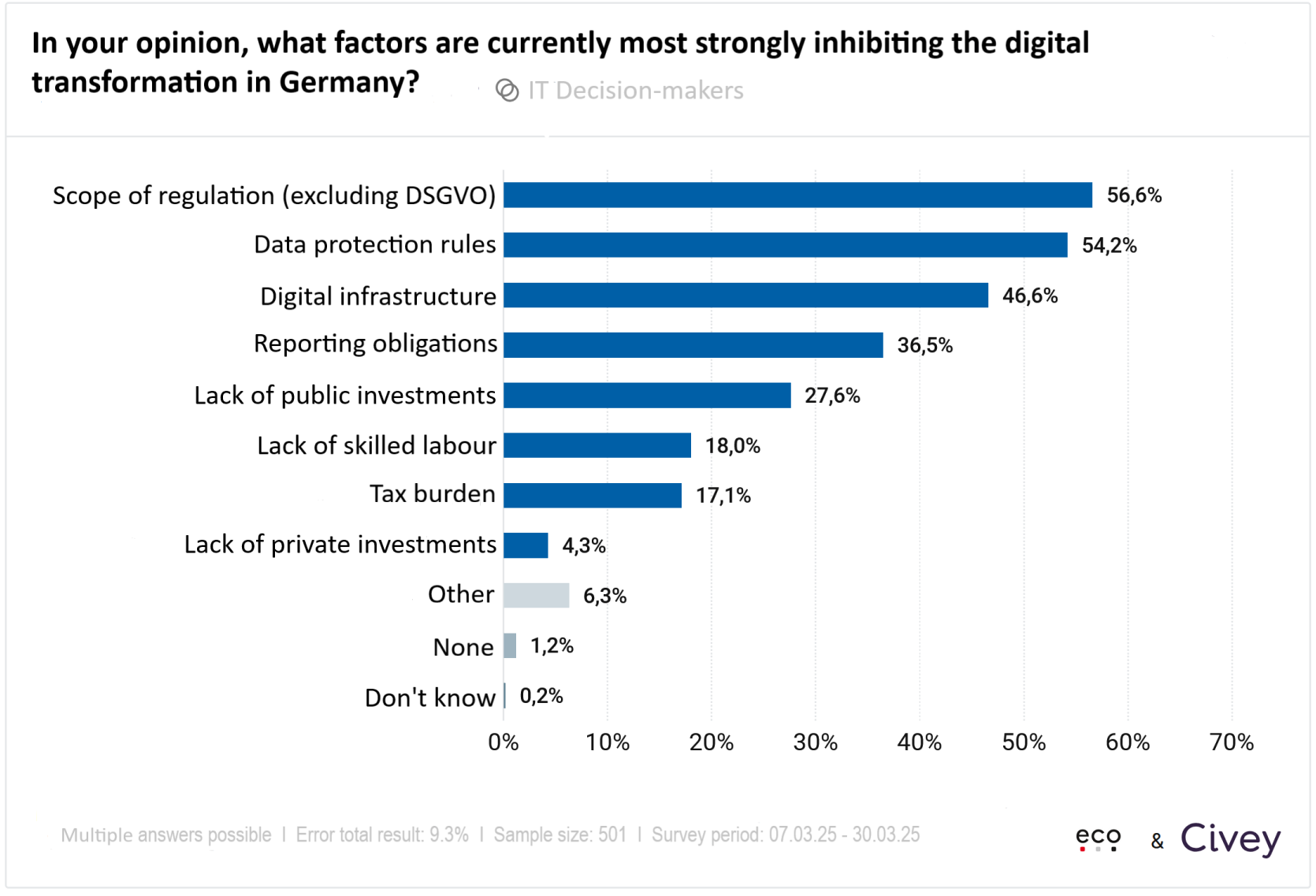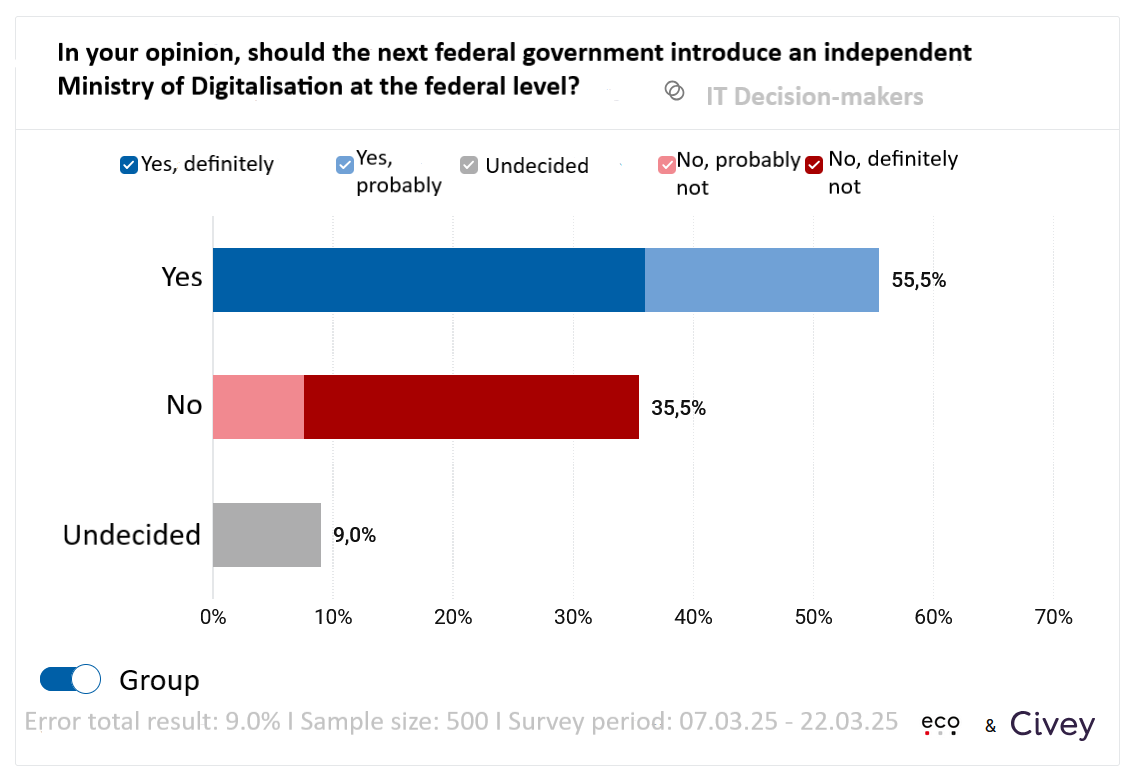eco Chair of the Board Süme appeals to coalition parties: “CDU/CSU and SPD must now set the course for a Digital Germany 2030”
- Not even close: Over a third of IT decision-makers rate the state of Germany’s digital location as unsatisfactory
- Coalition negotiations: Data retention and weakening of crypto are harmful to trust and security online
- More than half of those surveyed would like to see a Ministry of Digitalisation
As the German coalition negotiations draw to a close, eco – Association of the Internet Industry is appealing to the future government parties to now set the right course for a strong and future-proof digital location in Germany: “In our view, a digital strategy with specific goals and a Ministry of Digitalisation with extensive cross-departmental regulatory powers and its own budget are the key digital policy measures that the future coalition partners must now define with binding commitment,” says Oliver Süme, Chair of the Board at eco. As he notes, Germany cannot afford another four years of aimless digital policy.
From the perspective of the Association of the Internet Industry, too many responsibilities and too little strategy are the causes of the excessive regulation and the lack of innovation incentives that have characterised German digital policy in recent years.
eco Industry Pulse: 68% of IT decision-makers rate the state of digital transformation as poor
A large proportion of IT decision-makers also share this view: Only 0.7% currently rate the state of digital transformation in Germany as “good”. This is the result of the latest eco Industry Pulse – a recent survey of 500 IT decision-makers in Germany conducted by the market and opinion research institute Civey on behalf of eco Association*.
The respondents perceive the extent of regulation as the biggest constraint on digitalisation in Germany (56.6%). Around 55% specifically mention existing data protection rules in this context. In addition, 46% of those surveyed see the state of the digital infrastructure as particularly inhibiting, and over a third (36%) cite reporting obligations.
Current status of coalition negotiations from the perspective of the Internet industry
The interim results that have become known from the ongoing coalition negotiations are therefore viewed partly critically by eco. From the association’s point of view, the reform of data protection is also a central challenge for the next German federal government: “The discussions about the standardisation and reduction of bureaucracy in data protection are a positive signal. The decisive factor here is which points are ultimately taken up in the coalition agreement and can also be implemented together with the federal states,” says Oliver Süme.
The plans of the negotiating partners for the expansion of the Internet and infrastructures could turn out positively. “The decisive factor here is the extent to which portions of the special fund will also be invested in digital infrastructures,” explains Süme. In this context, however, the energy policy decisions that will be taken with regard to the data centre industry in Germany are also important.
eco recommends an urgent change of direction on the topic of surveillance: “The currently suggested introduction of IP address storage sounds worrying. It almost seems like a reintroduction of data retention, which is contrary to fundamental rights,” Süme goes on to say. From eco’s point of view, the weakening of end-to-end encryption, which has also been discussed, would be a disaster for the citizens’ privacy, trust and security on the Internet.
According to eco, if the positive incentives can be meaningfully implemented, this depends on the creation of a Ministry of Digitalisation with its own budget and regulatory authority. The establishment of such a department is also desired by more than half (55%) of the surveyed IT decision-makers.
About the survey:
*Civey surveyed 500 IT decision-makers online for eco from 7 to 30 March 2025. The results are representative considering quotas and weighting, taking into account the statistical error of 9.2 percentage points in the respective overall result. Further information on the methodology can be found here.



Further information on eco’s Internet Policy Agenda and the concept paper for a Ministry of Digitalisation can be found online at: Election/Digital 2025: Digital Policy in Focus




